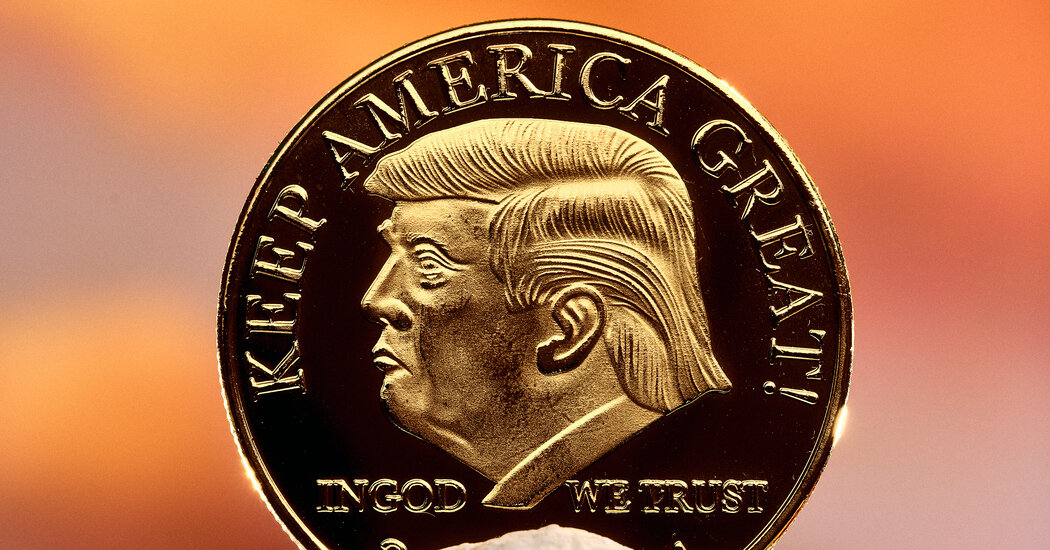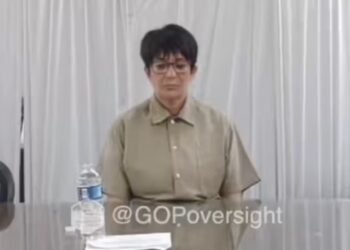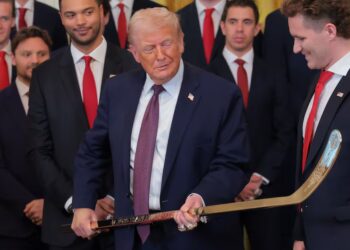
The Constitution gives the authority to tax and spend not to the head of state, but to the elected representatives who are closest to the people: the members of Congress. Money is power, and the founders of this country feared that a president would turn into a monarch if he alone could dictate how the government uses the federal treasury.
President Trump, however, has tried to take Congress’s constitutional power and make it his own. He has repeatedly ignored laws passed by the House and the Senate to spend money, or not spend it, based on his whims and agenda. He has violated the law at least six times, according to the Government Accountability Office, a federal watchdog agency. That total does not include the government shutdown, when he continued to disregard the law.
The moves are part of a strategy designed chiefly by Russell T. Vought, Mr. Trump’s budget director and an author of the Heritage Foundation’s Project 2025 document, which laid out a potential agenda for a second Trump term. The moves also fit with Mr. Trump’s broader strategy to push the United States away from its democratic traditions and concentrate power in a single person — him. Alarmingly, congressional Republicans have stood by while Mr. Trump has executed this power grab.
Mr. Trump’s abuses of spending power fall into three categories. First, he has refused to spend money that Congress allocated. He avoided allocating foreign aid with a maneuver known as a pocket rescission, and he withheld funds for electric vehicles, libraries and museums, preschools, other schools, grants for scientific research and emergency response operations.
Second, Mr. Trump has spent money that Congress has not allocated. During the shutdown, he paid military troops and some other federal workers without congressional approval. He used private funds from a billionaire supporter for some of the payments, setting a dangerous precedent. Earlier in his term, he declared an emergency to divert funds for the military to his border crackdown.
Third, the president has taken steps that effectively overturn Congress’s spending decisions. In these cases, he has not added or subtracted federal funds, but he has taken other steps that make it so an agency cannot carry out the mission that Congress envisioned for it. He has gutted the Department of Education with layoffs, making it impossible for the agency to do things, such as protect students’ civil rights, that Congress appropriated funds for it to do. He has taken similar steps with the Consumer Financial Protection Bureau.
In some of these instances, courts have attempted to stop Mr. Trump, but his policies remain in effect while the cases wind through the courts. In too many other instances, the Supreme Court has unwisely endorsed Mr. Trump’s approach. (It allowed his cuts to foreign aid, for example, asserting that the president has broad authority over foreign policy.) Either way, the result is an expansion of presidential power and a weakening of the legislature that should alarm anybody who shares the American founders’ suspicion of centralized power.
Mr. Trump and his supporters can fairly argue that they did not start the trend of executive overreach. In response to gridlocked and disagreeable congresses, previous presidents have sought to expand their powers in ways that violated the spirit, if not the text, of federal laws. President Joe Biden’s attempt to forgive student loans, in the face of opposition in Congress that included even a few Democrats, is one example. Yet Mr. Trump is different. He has gone much further than previous presidents, which explains why the Government Accountability Office has found he violated the law six times in the span of a few months. Regardless, “he started it” is not a reasonable justification for a child’s misbehavior, much less a president’s.
Republicans have done little to confront Mr. Trump’s abrogation of Congress’s spending powers. They have largely refused to criticize his actions. They have chosen not to block his executive and judicial nominees, which they could use as leverage to get the president to respect the constitutional order. They have failed to pass new bills that would emphasize their constitutional role in setting taxing and spending. These moves would raise the political costs of Mr. Trump’s actions by signaling that this issue is not narrowly partisan. It is constitutional. The country’s founders envisioned a legislature that was a primary center of power in its own right, rather than subservient to an executive.
It would be a useful exercise for Republicans in Congress to envision how a future Democratic president might use the sort of spending powers Mr. Trump has claimed for himself. Democrats, after all, typically like to use government power ambitiously. Imagine a Democratic president who allocates money to health insurance subsidies, clean energy programs or preschool classes without congressional approval. Or imagine a president who refuses to spend money that Congress had allocated for oil exploration, immigration enforcement or corporate subsidies. That future president would be able to cite Mr. Trump as a precedent.
If Congress refuses to act, the courts will need to do more. Lower court judges have already done an admirable job, ruling against Mr. Trump’s spending decisions on foreign aid, food stamps and more. Judges appointed by presidents of both parties have written detailed decisions that explain the illegality of Mr. Trump’s actions. They have called them out for what they are, using words like “arbitrary,” “capricious” and “disingenuous.” In one ruling, a judge cited a previous decision from Justice Anthony Kennedy: “Liberty is always at stake when one or more of the branches seek to transgress the separation of powers.”
Today’s Supreme Court has been far too tolerant of Mr. Trump’s steamrolling of Congress. It has stood by while Trump effectively cancels, after the fact, the agreements lawmakers make to pass a budget. What’s the point of the appropriations process if the president can just undo it? The justices have fresh opportunities to return our system to order, including in the ongoing case about Mr. Trump’s tariffs. They should do so.
The Times is committed to publishing a diversity of letters to the editor. We’d like to hear what you think about this or any of our articles. Here are some tips. And here’s our email: [email protected].
Follow the New York Times Opinion section on Facebook, Instagram, TikTok, Bluesky, WhatsApp and Threads.
The post Trump Has Snatched the Power of the Purse. Congress Should Take It Back. appeared first on New York Times.



